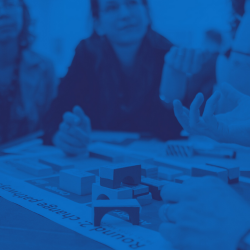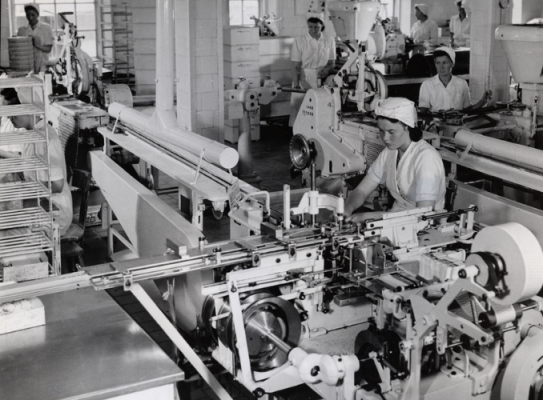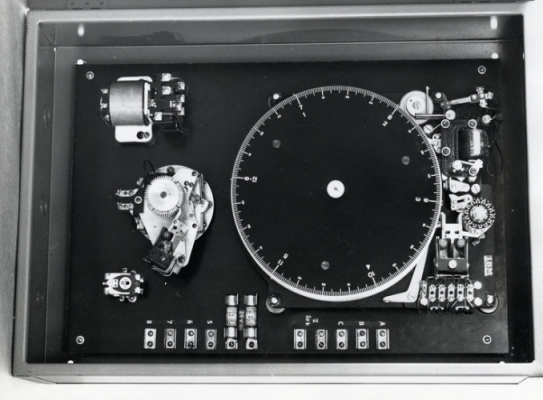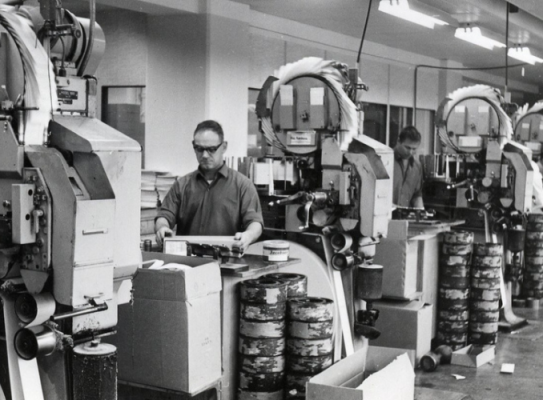
Introduction
2020 is proving a challenging year. The coronavirus pandemic continues to affect all of us and we see that clearly in the ongoing challenges facing the cultural heritage sector. Many people are adapting to new ways of working, and we must thank all for their continued dedication and hard work, including Europeana Foundation staff, our partners and friends in the Europeana Network Association, the Europeana Aggregators’ Forum and all of the projects we are part of across the sector.
What is Europeana DSI-4?
The European Union is working to create the infrastructure that will support its citizens, sectors and public administrations in their access to digital services. It is building ‘digital bridges’ through what it calls Digital Service Infrastructures (DSIs), to provide access to those services for the benefit of all. Europeana is the DSI that delivers services to showcase and provide online access to Europe’s digital cultural heritage.
The Europeana service is provided by a consortium of 23 partners, coordinated by the Europeana Foundation, and is funded under the Connecting Europe Facility (CEF). Europeana DSI-4 is the current project.
Explore significant highlights from the second year of DSI-4 (September 2019 - August 2020) below.
COVID-19 and preparing the new normal
Our sector is large and diverse and as we move through the crisis, our new normal includes digital practices as never before. The digital transformation of the sector is accelerating, and together this year we have been exploring how the sector is reacting, and how we can build sustainable digital strategies to support it.

Ideas for digital engagement in the time of COVID-19
Learn more about Ideas for digital engagement in the time of COVID-19.png)
Coming together in isolation - mobilising digital transformation in the face of COVID-19
Learn more about Coming together in isolation - mobilising digital transformation in the face of COVID-19
Building capacity for digital transformation: how our workshops support the cultural heritage sector
Learn more about Building capacity for digital transformation: how our workshops support the cultural heritage sectorNew strategies to empower digital transformation
As the full extent and impact of the COVID-19 pandemic makes itself felt, the need to embrace and support the digital transformation of Europe’s cultural heritage sector and to do so in an inclusive way, has never been clearer. The vision of the Europeana Strategy 2020-2025, which sees a digitally powered cultural heritage sector taking its place at the heart of society, is more important than ever.
Our mission for the next five years is to empower the cultural heritage sector in its digital transformation. Important tools to help institutions to build their capacity for digital transformation developed this year include:
- A new aggregation strategy to provide improved publishing speed and growth in data quality
- A redesign of Europeana Pro with a new information structure to better serve our professional communities
- The release of Phase II of the Impact Playbook which supports institutions to plan and assess the impact of their activities

- Title:
- AB Cloetta, Ljungsbro, interiör.
- Creator:
- Okänd
- Date:
- 1947
- Institution:
- Tekniska museet
- Country:
- Sweden
- Copyright:
- Public Domain
Working together for culture
The Europeana Initiative brings together cultural heritage professionals to take part in partnerships and funded projects that develop digital solutions for sharing and using cultural heritage, with some particular highlights below.
Education
A collaboration with Unsplash saw 206 Europeana items downloaded 269,000 times, while a massive open online course designed by and for educators ran in five languages and had 2,000 participants.
Academic Research
Our 2019 grants call on the topic ‘Digital Cultural Heritage for Open Science’ closed with over 70 applications from researchers from almost all EU countries. Four institutions were awarded a Europeana Research grant for events on topics the social impacts of open heritage, linking digital platforms, enriching metadata and issues around FAIR data.
Data
A EuropeanaTech Task Force on 3D content in Europeana published its final report containing recommendations to Europeana and the community of providers of 3D content. Work continued to motivate aggregators and institutions to raise the quality of their collections, including via two national workshops, training events and an update to the Europeana Publishing Framework.
Generic services
Seven projects concluded in February 2020, with results and tools integrated where appropriate. Six projects are currently running, four focus on content aggregation and data quality improvements, and two focus on high quality curated content.
Events
A series of physical events - a highlight being the Europeana 2019 Connect Communities conference - and digital events - including webinars that remain as online resources - brought the Europeana Network Association, Europeana Aggregators' Forum and the wider sector together. These events provided opportunities for participants to develop new skills, discuss common challenges, develop a deeper involvement with the Europeana Initiative and showed the power of collaboration in a sector tackling crises.
Advocating for better digital practices
The Europeana Initiative provides the cultural heritage sector with a voice advocating for better digital practices.
High-level policymakers from across the EU discussed multilingualism in the digital cultural heritage sector at a Europeana event held in Finland, related to Finland’s presidency of the Council of the EU. Recommendations from this meeting fed into a new multilingual strategy for Europeana.
In May, Europeana and Europa Nostra, acting with the European Heritage Alliance, held a webinar to mark the 70th anniversary of the Schuman Declaration. Highlighting how cultural heritage can be a powerful catalyst for the future of Europe, the event saw 500 participants attend, including high-level representatives of EU institutions and Europe's cultural heritage world.
The Europeana Copyright community continues to work to provide clear materials and training opportunities to support professionals responsible for copyright activities. A survey identified the most common challenges and a series of webinars discussed copyright practices in the EU and other parts of the world.
Culture for all
Through Europeana, cultural heritage institutions can connect with existing and new audiences online. The Europeana collections website provides access to over 50 million digitised cultural heritage objects from more than 3,700 libraries, museums, archives and audiovisual collections. And in March 2020, we launched Europeana Classroom - 300+ educational resources for educators and learners.
We tell our audiences curated stories about Europe's cultural heritage through newsletters, blogs, galleries, seasons and exhibitions.
The fifth edition of the GIF IT UP competition held in October 2019 gave audiences the chance to use and work with culture digitally as they created animated GIFs from openly licensed cultural heritage material. The competition increased reach to new and wider audiences with 186 entries receiving over 186.5 million impressions on social media in one month.
Technical solutions to showcase digital heritage
The Europeana Initiative develops and maintains technical solutions for showcasing, sharing and using digital cultural heritage, and builds partnerships with technology organisations that foster and promote innovation in the cultural heritage sector.
An updated Europeana collections website provides a new browsing experience that’s faster, more discoverable and more accessible than ever before. Work advances on complying with Web Content Accessibility Guidelines continues, to make the site more accessible to all, and on implementing a new multilingual strategy to further improve audience experience.
Europeana's APIs allow developers to build applications that use the wealth of collections drawn from the major museums and galleries across Europe. This year, improvements include providing more accurate auto-suggestions and optimisations for multilingualism when searching and retrieving data in the Entity API, development of a new Thumbnail API and User Sets API, and updates to the Annotations API and IIIF range of APIs.
A proof-of-concept has been developed for a new Statistics Dashboard showing an overview of the quality of content and metadata within a dataset received and received positive feedback from the Europeana Aggregators' Forum and Data Quality Committee. Work now follows to further develop the concept.


